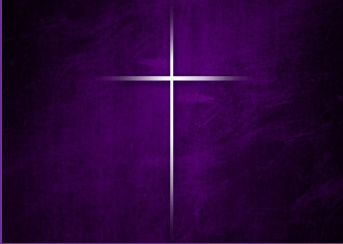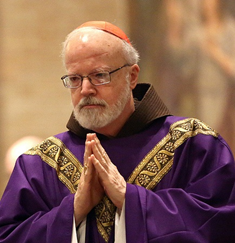Newsletter, March 2, 2021
Power of Prayer
One of the most common requests a priest receives in the course of a day is for prayers. The request can happen anywhere: on a bus, at Market Basket or Dunkin Donuts, walking down Main Street, walking Lily in the park, and in the back of the church. Sometimes the request comes with an explanation that indicates a family problem, a sickness or a personal struggle. At other times there is no explanation, merely a look of sadness or stress in the eyes of the person. In whatever circumstance, I always receive the request seriously and take it to heart.
Over the years my understanding of prayer for another has evolved. Frankly, I have probably forgotten the exact theological teaching on the matter and simply know in my heart that prayer undertaken in earnest for another is powerful. You see it is first of all an act of faith. Faith in the power of God to heal, comfort, console, and accompany another in the struggle of life.
Nothing is more powerful than belief in God. Prayer for another is an act of belief in the omnipotence of God and the capacity of God to reach into one’s life and affect the heart, the spirit. We believe that God can do all things and acting on this belief frees God to act. Over and again Jesus insisted on faith. He explained that it was the faith of a person that brought about miracles He achieved. “Your faith has saved you,” He would proclaim after some expression of His omnipotence.
Not long ago, a young woman who had asked for prayer came to me to explain that her cancer had been cured, although the prognosis several months earlier had been dim. She stated emphatically that it was prayer that had brought about this healing. I do not doubt her. At the same time I recognize there is enormous mystery in these matters and rarely are things the black and white some might like them to be. My faith does not insist that all turns out according to my wishes or intentions. Rather my faith in prayer takes the person and presents them lovingly to God with a firm belief that God’s love for them will bring them to a good end.
In Lent, the Church urges us to embark upon a routine of prayer, fasting and almsgiving. These are the cornerstones of our Lenten journey. Prayer has many expressions and a prayer of petition for another is one of them. At its root, it is an expression of one’s personal faith. So for me an excellent place to begin this prayer is in the powerful petition of the Centurion from scripture: “Lord I believe, help my unbelief.”
Fr. Ronan

Below is an article on Catholic Discipleship and how it leads to our call to stewardship. Though all of us are living this in many ways already, we can continue to grow in our commitment to Jesus each day. This will always be a work in progress.
Catholic Discipleship is a way of life. It begins with who we become which influences what we do. It is best understood within the context of the conversion process, the turning away from self-centeredness to the recognition that God is the loving Creator and source of everything in our lives. This conversion process transforms our fundamental perspective of life – we move from owners of what we have, to trustees/stewards of the unconditional and loving gifts that have come from God. With this perspective, a disciple recognizes that everything comes from God, develops what has been given, shares it in a loving and just way, and increases what God entrusts to her/him according to the will of God.
Discipleship is counter-cultural and challenges the secular philosophy that all we have gives us value, and is solely ours. Instead, we are endowed with dignity because of an intimate relationship with God and because all our time, talent, treasure and assets are His gifts to us. We use these gifts to become co-creators and protectors of all life, live out our God-given vocation, and strengthen and preserve the well-being of the people of God and all of creation.
As committed disciples of our God, we constantly seek to ask ourselves the same question that the psalmist struggled to answer, “How do I make a return to the Lord for all the good he has done for me?” (Psalm 116:12) Our response progressively takes on a radical conversion and turning over all of our life as an offering to God in gratitude and love.
Our desire to express gratitude and love “to God for all the good he has done” for us can be manifested in the giving of our time, talent, and treasure for the use of God’s work.
Every place we live gives s the opportunity to be faithful disciples. In our homes, we are good disciples when we try to relate well to the people we live with. We are being good Catholic lay men and women and good disciples when we bring the values of honesty and integrity in all aspects of our life – home and to our work to help transform the workplace. We are also being good disciples when we endeavor to be kind and compassionate. Our presence in the workplace and in the world can radiate the light of Christ and bring blessing to others.
Discipleship is in a Christian’s DNA. Living the way of a good disciple is at the heart and center of every life. Our baptism calls us to be good disciples and stewards of God’s blessings.
Prayer
Jesus, help me to spread your fragrance everywhere I go today.
Flood my soul with your spirit and life.
Penetrate and possess my whole being so utterly that all my life may only be a radiance of yours.
Shine through me and be so in me that every soul I come in contact with may feel your presence in my soul.
Let them look up and see no longer me, but only Jesus!
Amen
-. Blessed John Henry Newman
A Virtual Retreat with Cardinal Séan
Christ, Our Light in the Darkness
Monday, March 23 to Saturday, March 28, 2021
7 to 7:30 pm
The retreat will air/stream nightly at 7 p.m. on the
Archdiocese of Boston’s Facebook page
CatholicTV and on
www.bostoncatholic.org
For more information, visit:
https://www.bostoncatholic.org/virtualretreat

